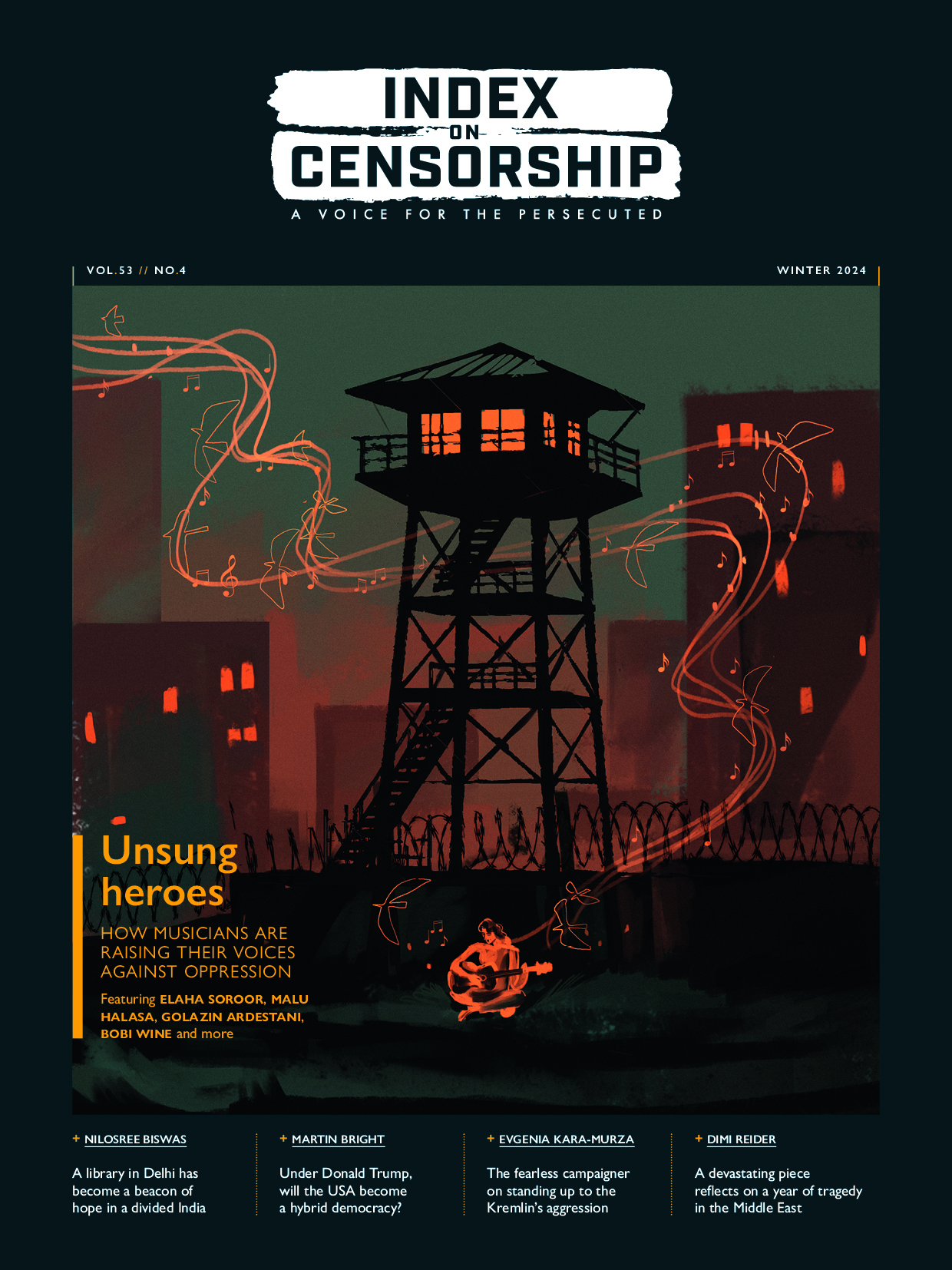
Not everyone can be as lucky as I was, says Alexei Sayle. Our defamation laws are as outdated as barristers’ wigs and gowns
The envelope was a funny shape –– you don’t get an envelope that shape without it meaning something bad; I don’t know if sulphurous smoke was actually curling from it but it might as well have been. I was being sued for libel and though after a lot of time and effort the case was dismissed, and I was awarded costs (which I never saw), it was a horrible experience. I always thought it would have been a lot cheaper and a lot less worry if I’d stabbed the bloke — the most I would have got was an asbo barring me from certain parts of Croydon. As it was, I risked losing absolutely everything –– just for saying some words.
At the launch of the Index on Censorship, English PEN and Sense About Science‘s libel reform petition this week, I heard other stories of people who’d been through the libel mill: the Sheffield Wednesday fans who got solicitors letters after criticising the club’s board on a fan forum; the Danish newspaper sued for questioning Icelandic banking practices; the science writers who dared challenge the claims of alternative therapists; and, perhaps most clear cut, down the line, couldn’t-be-any-more-wrong awful, the case of cardiologist Peter Wilmshurst, who could lose the roof over his head after expressing his medical view on the performance of a heart implant device. This isn’t just me shouting my mouth off, we’re talking about something really important here: heart surgery, life and death.
But our libel courts don’t seem to acknowledge this. They’re as archaic as the wigs and gowns worn by the barristers who make good livings defending dodgy oligarchs, greedy multinationals and egomaniacal politicians from “slurs” on their “reputation”. For example, Wilmshurst can be sued here for comments made in America to a Canadian website because the libel laws haven’t caught up with the internet; the simple fact that something can be read in England means claimants can come from anywhere in the world and use London courts to defend a reputation they never had in the first place. London has become a place to come to get away with stuff you couldn’t get away with anywhere else. To paraphrase Index on Censorship’s John Kampfner, we are a sort of judicial Cayman Islands.
While foreign claimants are a problem, it’s not just because they can come here that they do: they come because the courts are loaded against the defendant. It’s very rare for a person or organisation to defend a libel case successfully. I was one of the lucky ones.
But even then, we’re only talking about the cases that get to court. How many bloggers have taken down articles from the web after receiving a threatening letter? It’s impossible to say. This is where people such as Justice Eady, the judge who seems to decide on most libel cases, has it so badly wrong. Problem, what problem? he asks, citing the fact that relatively few cases make it to full trial. That’s just the point.
People are either bullied into settling out of court, and admitting wrongdoing even when they’re completely right, or they self-censor. How many people – editors, writers, scientists, football fans, bloggers – have a little Eady nagging away in a corner of their brain, constantly reminding them that there are certain subjects that are taboo, thanks to our archaic defamation laws?
Things have to change, and, hopefully, they are changing. The new libel coalition is up and running. People can sign up on www.libelreform.org and use the petition to lobby their MPs. There are indications that the government’s position may be shifting and that David Cameron might also be persuaded to act. They should, because the UK’s libel law is a global embarrassment and an affront to our liberties. That’s why I was happy to be one of the first people to sign the petition for libel reform. With an election coming, which party wants to style itself as an enemy of free expression by not joining me in supporting this campaign?





